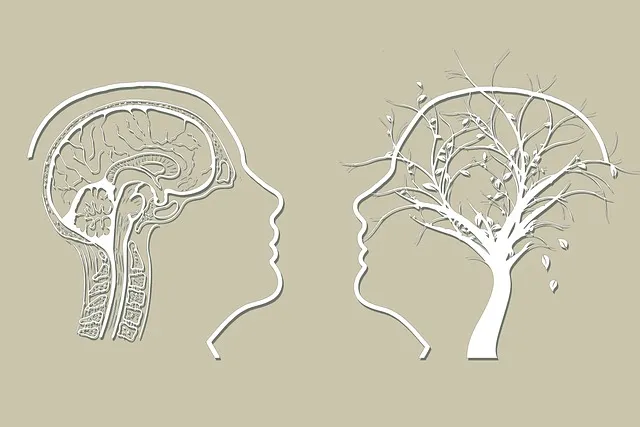The Kaiser Permanente mental health department in Arvada prioritizes cultural sensitivity, ensuring diverse patients feel heard and understood. They offer tailored services addressing unique cultural needs, integrating personalized techniques like positive thinking aligned with a patient's culture. This approach enhances treatment outcomes and fosters better recovery paths. Their inclusive services cater to diverse communities via the known Kaiser Permanente mental health department phone number in Arvada, providing a safe space for discussions around mental well-being with a cultural perspective.
Cultural sensitivity is a cornerstone of modern mental healthcare, ensuring equitable and effective treatment for all. This article explores this concept through various lenses, focusing on the role of organizations like Kaiser Permanente’s Mental Health Department in fostering cultural competence. We’ll delve into strategies to navigate cultural barriers, highlighting a case study from Arvada, Colorado, where cultural sensitivity enhanced patient care. For more information, contact the Kaiser Permanente mental health department at [phone number].
- Understanding Cultural Sensitivity in Mental Healthcare
- The Role of Kaiser Permanente Mental Health Department in Cultural Competence
- Navigating Cultural Barriers: Strategies for Effective Communication
- Enhancing Patient Care Through Cultural Sensitivity: A Case Study from Arvada
Understanding Cultural Sensitivity in Mental Healthcare

Cultural sensitivity is a cornerstone of effective mental healthcare practice. It involves recognizing and respecting the diverse cultural backgrounds, beliefs, and values of individuals seeking support. The Kaiser Permanente mental health department in Arvada, for instance, prioritizes culturally competent care by offering services tailored to meet the unique needs of its diverse patient population. This approach ensures that everyone feels heard, understood, and supported, fostering an environment where they can openly discuss their experiences and concerns.
By integrating cultural sensitivity, mental healthcare providers can address not just the symptoms but also the underlying social and cultural factors contributing to mental health issues such as depression. Encouraging positive thinking and self-awareness exercises that resonate with a patient’s cultural context can be powerful tools in prevention and recovery. This personalized approach enhances the overall effectiveness of treatment and promotes better outcomes for all individuals seeking care.
The Role of Kaiser Permanente Mental Health Department in Cultural Competence

The Kaiser Permanente Mental Health Department in Arvada plays a pivotal role in promoting cultural sensitivity and competence within the healthcare system. They recognize that understanding diverse cultural backgrounds is essential for delivering effective mental health services. By integrating Inner Strength Development practices, the department fosters an environment where compassion cultivation is at the core of patient care. This approach not only enhances therapeutic relationships but also supports burnout prevention among healthcare providers.
Through specialized training and education, Kaiser Permanente equips its professionals with the skills to navigate cultural nuances, ensuring that every patient receives personalized attention. Their commitment to cultural sensitivity goes beyond words; it’s evident in their inclusive services, which cater to a wide range of communities. For those seeking mental health support in Arvada, the Kaiser Permanente department is easily accessible via their dedicated phone number, offering a safe space for conversations around mental well-being with a cultural lens.
Navigating Cultural Barriers: Strategies for Effective Communication

Navigating Cultural Barriers is an essential aspect of providing effective mental healthcare, especially when serving a diverse community like that found in Arvada, where individuals from various ethnic and cultural backgrounds seek support. The Kaiser Permanente mental health department phone number Arvada serves as a crucial resource for those seeking culturally sensitive care. Effective communication strategies are vital to bridging the gap between healthcare providers and clients from different cultures.
One key approach involves actively listening to and understanding an individual’s cultural background, beliefs, and values. This process allows healthcare professionals to adapt their practices, ensuring that every client receives personalized attention. For instance, some cultures may have specific rituals or traditions related to mental health and healing, which can be incorporated into treatment plans with the right guidance. Additionally, providing multilingual resources and interpreters facilitates open dialogue, encouraging clients to share their experiences without barriers, ultimately enhancing the quality of care.
Enhancing Patient Care Through Cultural Sensitivity: A Case Study from Arvada

In Arvada, the Kaiser Permanente mental health department has pioneered an approach that emphasizes cultural sensitivity, significantly enhancing patient care. This initiative underscores the importance of understanding and respecting diverse cultural backgrounds in healthcare settings. By integrating cultural competency into their practice, the department aims to create a safe and inclusive environment where patients from various ethnic, racial, and socio-economic groups feel heard and understood.
The case study from Kaiser Permanente reveals that culturally sensitive practices lead to improved patient outcomes. For instance, incorporating stress reduction methods tailored to specific cultural needs has shown promise in managing anxiety and depression. Additionally, risk management planning for mental health professionals, including social skills training, ensures that staff are equipped to navigate cultural nuances effectively. This holistic approach not only fosters better relationships between patients and caregivers but also encourages open communication, ultimately promoting successful treatment and recovery journeys.
Cultural sensitivity in mental healthcare is not just a best practice, but an essential component for providing effective and compassionate care. As evidenced by the case study from Arvada and the leading role of the Kaiser Permanente Mental Health Department, prioritizing cultural competence through education, communication strategies, and inclusive policies significantly enhances patient outcomes. By understanding and respecting diverse cultural contexts, mental health professionals can create safe spaces that foster trust and promote healing. For more information on cultural sensitivity in mental healthcare services, contact the Kaiser Permanente mental health department at (provide phone number if available).






